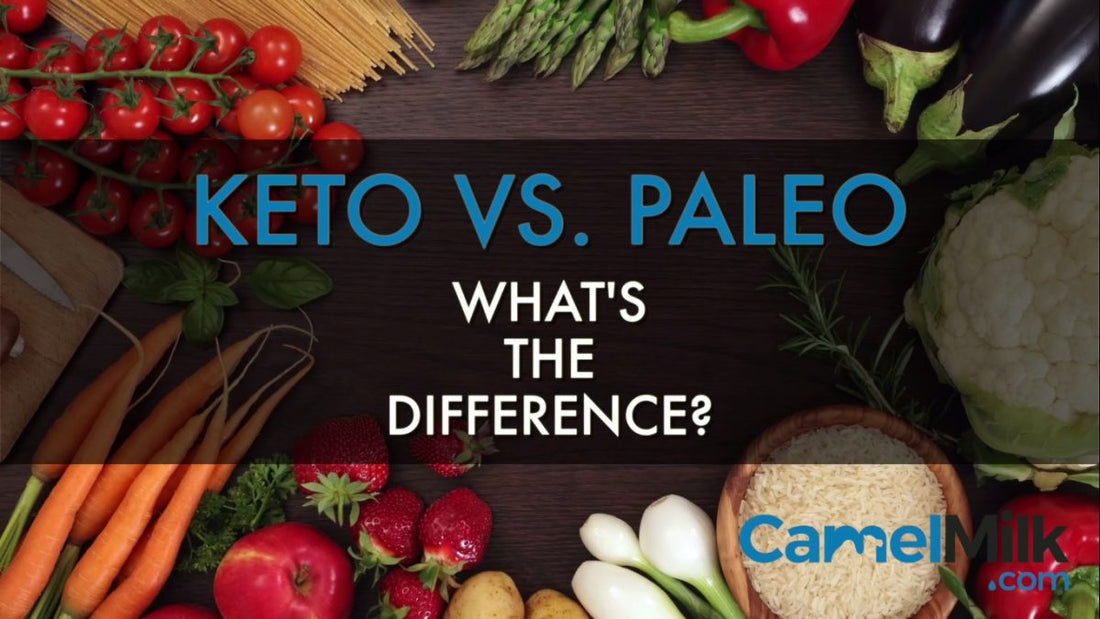Keto, Paleo, Atkins, low-carb, low-fat, vegan. There are a million dietary choices right at your hands, and in recent years, both ketogenic (keto) and Paleolithic (Paleo) diets have garnered significant interest. They boast benefits from reversing autoimmune diseases to treating epilepsy, type 2 diabetes, and even helping with weight loss, so it’s no wonder these two diets have won over so many people.
But which diet is the best for you? Are they the same? Do they have different benefits?
What Is the Keto Diet?
Ketogenic diets aim to stimulate ketosis, which is a metabolic process that burns fat to create energy and acids called ketones. Ketones are an ingredient your body can use as an alternative energy source to its usual blood glucose.
To push your body into ketosis, the ketogenic diet focuses on careful manipulation of the three macronutrient groups: fat, protein, and carbohydrate. Specifically, ketogenic diets involve high fat, moderate protein, and low carbohydrate intake.
In the most common form of the ketogenic diet, nicknamed the 4:1 keto, dieters eat only one gram of combined protein and carbohydrates for every four grams of fat they consume. For controlling conditions like epilepsy, a ratio as high as 6:1 may show even stronger effects.

Benefits of Keto Diet
With the ketogenic diet becoming very popular in recent years, you’d be forgiven for thinking this is a new approach to nutrition. In fact, the ketogenic diet was developed almost 100 years ago in 1924 to treat severe cases of epilepsy. After the invention of anti-convulsive drugs, the ketogenic diet fell out of favor.
The huge surge in the prevalence of obesity, diabetes, and auto-immune diseases in the western world has led many people to question the health of the western diet. Why, when western health care is so developed, are we suffering from debilitating health conditions like never before?
Diets like the keto approach may hold the answer.
With a ketogenic diet, epileptics who have become resistant to anti-convulsive drugs may see up to a 90% reduction in seizures. A ketogenic approach to eating has been shown to be neuroprotective, with small-scale studies showing improvements in Alzheimer’s symptoms, and researchers hypothesizing it could hold a nutraceutical cure. The list of benefits goes on, as ketogenic diets have been linked to improvement in conditions like acne, polycystic ovary syndrome, cancer, diabetes, heart disease, and weight reduction.
What Is the Paleo Diet?
The Paleo diet has very different founding principles than keto does. The aim of a Paleo diet is to eat the way you were evolved to eat. To do this, only foods that would have been available to humans from the Paleolithic era are allowed — foods that would have been possible to hunt and gather before the dawn of civilization.
Rather than defining the macronutrients allowed, a Paleo diet defines food choices by prehistoric availability.
Benefits of the Paleo Diet
A Paleo lifestyle culls many food options. Pre-packaged and pre-processed foods, including processed vegetable oils and refined sugar, are not allowed. These are all food groups linked to significant health concerns like cancer, obesity, diabetes, and morbidity.
In fact, studies show Paleo diets have several health benefits from the reversal of type 2 diabetes, to the prevention of heart disease, and reduction of reduction of blood pressure.
What Is the Difference Between Paleo and Keto?
Ketogenic and Paleolithic diets share many health benefits. However, the way they promote positive changes differs. Adopting a ketogenic diet means controlling your macronutrient ratio, while Paleolithic diets focus on following a meal plan that would have been pre-historically available.
If you are considering either of the two, you might consider adopting principles from each. A purely ketogenic or Paleo diet can be hard to stick to. Spending time on both practices may be the perfect combination to achieving the best health possible.

 Log in
Log in
